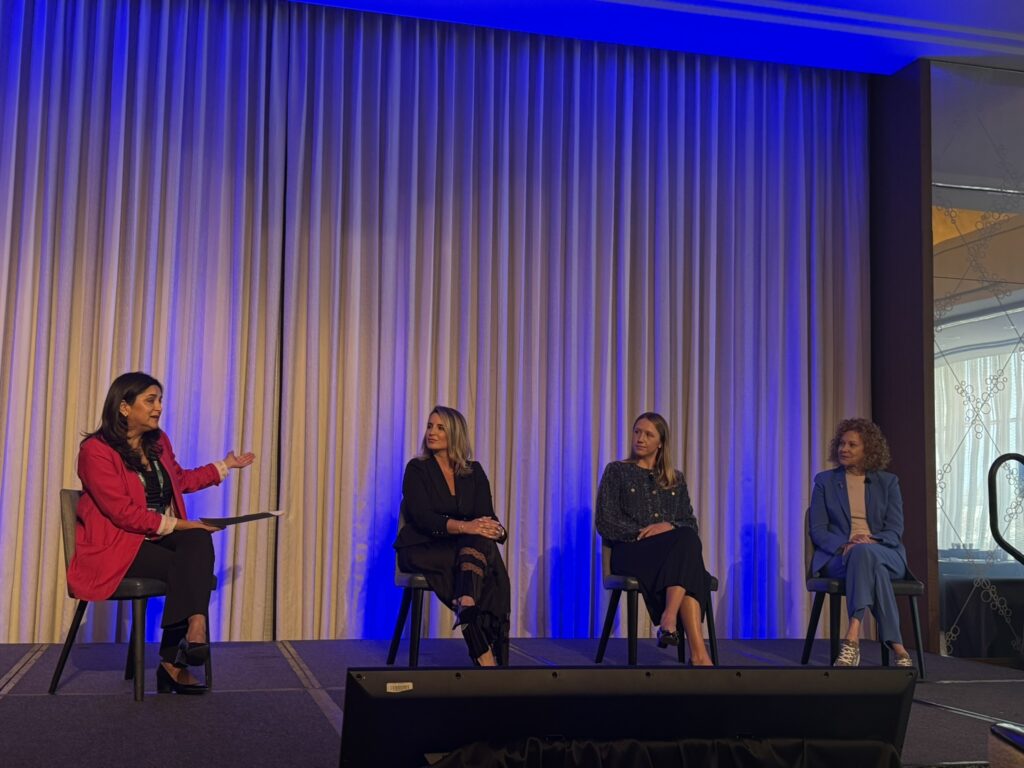
A panel featuring Luana Clapis, Chief Data Officer of Expana; Natalie McCaffery, AI-LEAF Institute Youth Education Project Lead at AIVO Institute; and Mary Snapp, Vice President for Strategic Initiatives at Microsoft, held during Expana’s Women in Food & Agriculture in Chicago discussed how artificial intelligence is reshaping the food and agriculture sectors and what leaders must do to navigate the transition.
Clapis said uncertainty will persist, but AI’s potential remains to “connect the dots, it will reshape the industry.”
“The industry will be more optimized and supply chains a lot more efficient, building resilience. That’s the power in AI. It bridges the gap between data and action,” Clapis added. “We now need to scale.”
The panelists echoed the fact AI will affect data and operations, reduce repetitive tasks, and allow companies to focus on value-added work, ultimately fostering increased innovation.
Snapp forecast widespread disruption across sectors through AI, saying, “Ai will help find answers faster. That promise to be incredible.” She also described practical uses for efficiency and productivity, noting that AI could support scenario planning and daily tasks. “We’ll all be using agents help us manage many aspects of what we do, and in ways we aren’t conceiving today. ‘Agents’ are likely to be an integral part of our lives at work an in our personal lives.”
Clapis argued that reducing time spent on technology itself can spur innovation, arguing that saving time with AI will foster innovation and that accessibility is relatively straightforward to use compared with other technologies. “Time is money.”
McCaffery emphasized leveraging skills beyond existing roles, noting that “AI tools allow better use of data and increase skills on projects.” She also pointed to the broader capabilities of AI in industry education and workforce development, adding that the need for AI skills training and ongoing education will continue to bridge gaps between data and practical application in food and agriculture.
On trust and governance, Snapp cited a poll she’d seen: “98% of people have heard of AI, but only 8% trust it. ‘We have a lot of work to do.’”
Snapp underscored accountability and responsible AI as a key focus, stressing the need for transparency and human oversight on the ground.
Leadership and culture were also on the agenda. Clapis urged leaders to lead with curiosity and cultivate a culture of experimentation to stay ahead of the market, saying, “AI will change how we work and guide people on how to embrace that.”
Snapp agreed that enduring leadership skills will continue to matter, while McCaffery cautioned that AI is a tool to build skill sets. However, successful adaptation hinges on having guiding leadership on the matter.

